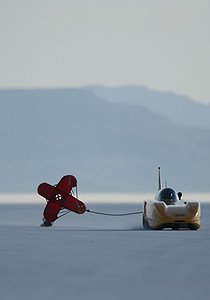
You sort of wonder how this impacts the world. Pluto is no longer considered a planet, but merely a dwarf planet.
The International Astronomical Union, dramatically reversing course just a week after floating the idea of reaffirming Pluto's planethood and adding three new planets to Earth's neighborhood, downgraded the ninth rock from the sun in historic new galactic guidelines.The upside of this new is that the next time somebody says there are 9 planets in the Solar system, you can tell them they're wrong. It still doesn't escape the feeling that these astronomers are playing definitional games. Pluto, for the record has moons. I want to know how something that can have moons not be a planet, but clearly I'm not an astronomer. Maybe it's in line with the war on terror and tightening belts; we can't afford nine planets any more.
Powerful new telescopes, experts said, are changing the way they size up the mysteries of the solar system and beyond. But the scientists showed a soft side, waving plush toys of the Walt Disney character _ and insisting that Pluto's spirit will live on in the exciting discoveries yet to come.
"The word 'planet' and the idea of planets can be emotional because they're something we learn as children," said Richard Binzel, a professor of planetary science at the Massachusetts Institute of Technology, who helped hammer out the new definition.
"This is really all about science, which is all about getting new facts," he said. "Science has marched on. ... Many more Plutos wait to be discovered."
Pluto, a planet since 1930, got the boot because it didn't meet the new rules, which say a planet not only must orbit the sun and be large enough to assume a nearly round shape, but must "clear the neighborhood around its orbit." That disqualifies Pluto, whose oblong orbit overlaps Neptune's, downsizing the solar system to eight planets from the traditional nine.
UPDATE:
Here's a cool article from the Beeb.
On Thursday, experts approved a definition of a planet that demoted Pluto to a lesser category of object.It looks like it was more political than previously thought.
But the lead scientist on Nasa's robotic mission to Pluto has lambasted the ruling, calling it "embarrassing".
And the chair of the committee set up to oversee agreement on a definition implied that the vote had effectively been "hijacked".
The vote took place at the International Astronomical Union's (IAU) 10-day General Assembly in Prague. The IAU has been the official naming body for astronomy since 1919.
Only 424 astronomers who remained in Prague for the last day of the meeting took part.
An initial proposal by the IAU to add three new planets to the Solar System - the asteroid Ceres, Pluto's moon Charon and the distant world known as 2003 UB313 - met with considerable opposition at the meeting. Days of heated debate followed during which four separate proposals tabled.
Eventually, the scientists adopted historic guidelines that see Pluto relegated to a secondary category of "dwarf planets".
Countdown To Atlantis Flight
 Here is the latest.
Here is the latest.During the 11-day mission, three space walks are scheduled to install and activate the new segment, which has a wingspan of 240 feet. Part of the segment will allow the trusses to rotate and keep the solar panels pointed at the sun.So the ISS project is getting back on line. I know some people who would be very happy about that.
The Atlantis mission is the beginning of a series of flights to complete construction of the space station. In September, a new crew of astronauts - ISS Expedition 14 - is slated to take up residence on the space station, and National Aeronautics and Space Administration officials expect them to be occupied with assembly tasks, as more modules are added to the station.
Over the next six months to 18 months, astronauts will 'watch the complexity and size of the space station grow,' Melissa Owens, who is involved in managing Expedition 14, said at a NASA briefing Tuesday.
ISS construction began in 1998 and was slated for completion in 2004-05. But the explosion of the Space Shuttle Columbia in 2003 halted US space flights until last year, severely delaying construction.
Rev-Head Record On Diesel
The world's fastest Diesel car maxed out at 525kph.
Another article has it at 588kph.

Yesterday Andy Green piloted the 9-metre machine to an FIA-sanctioned speed of 526km/h, today he shattered that record by averaging 563km/h over two passes in opposite directions within one hour.
Running soon after daybreak he recorded 588km/h on his first run and 540km/h on his return.
"It was always our ultimate goal and that was with a slow start to the second run," said Green.
"There is so much more to come as the car is pulling like a train and we still haven't used sixth gear!
"Today's record proves the potential we have always believed JCB Dieselmax to possess. This is another great result for a wonderful team and a testament to British engineering."
Boasting twin JCB444 common rail injection diesels with turbochargers and intercoolers, the JCB Dieselmax generates an impressive 560kW at 3,800 rpm.
Green is no stranger to speed. Not only is he a Royal Air Force jet pilot, but he holds the overall land speed record of 1227km/h, set in 1997 with the jet-propelled ThrustSSC car.
 Wow, is the word.
Wow, is the word.

No comments:
Post a Comment